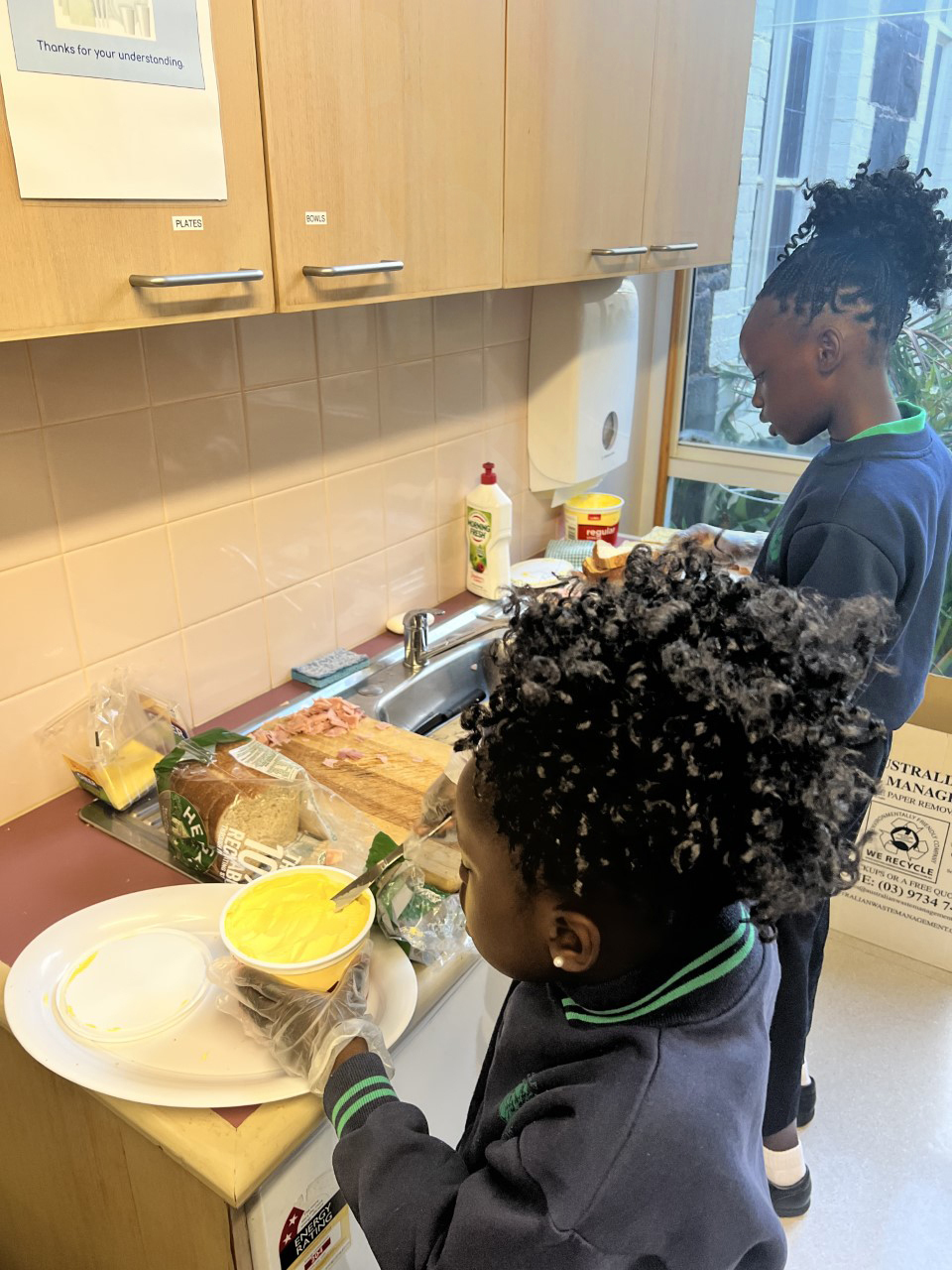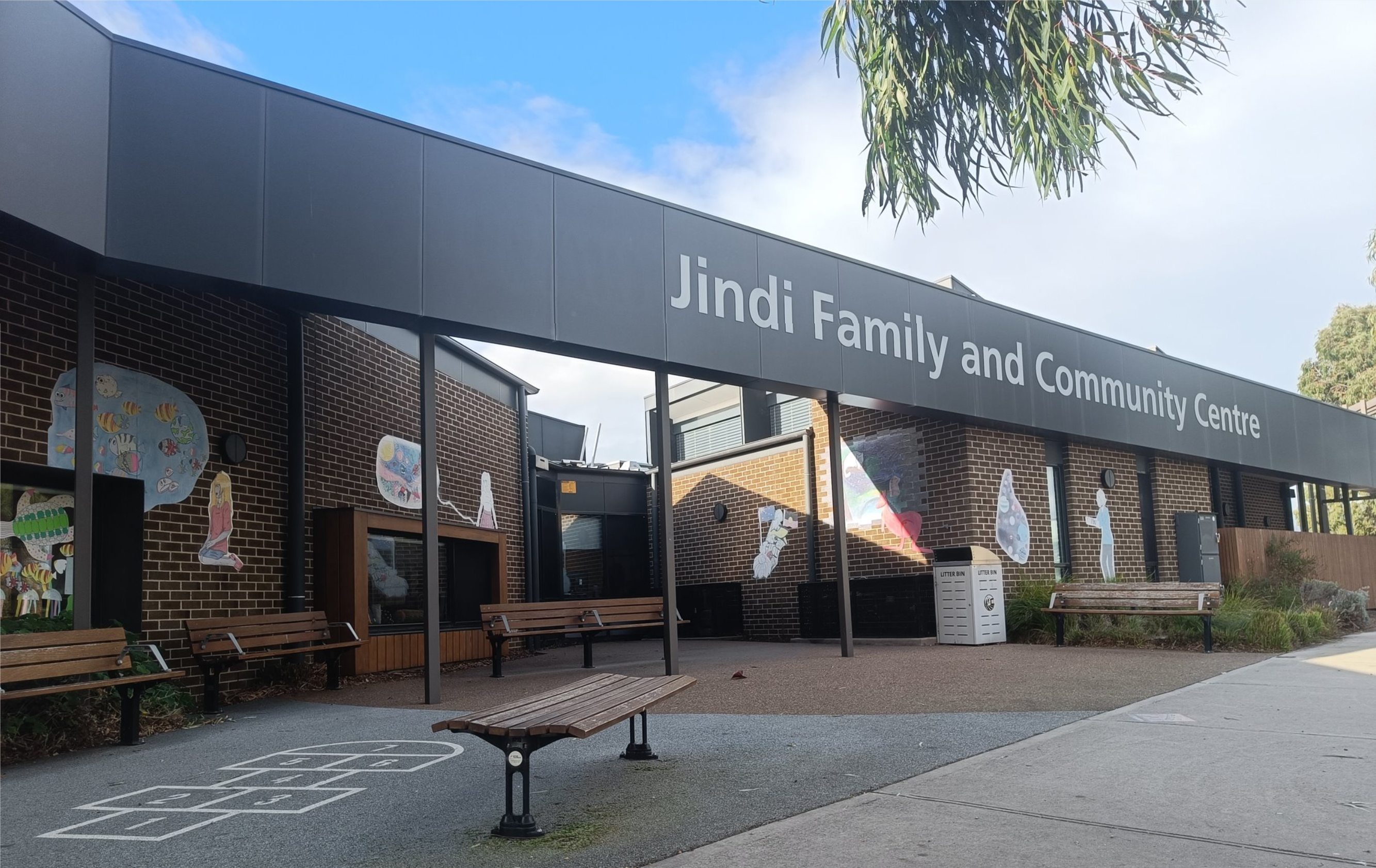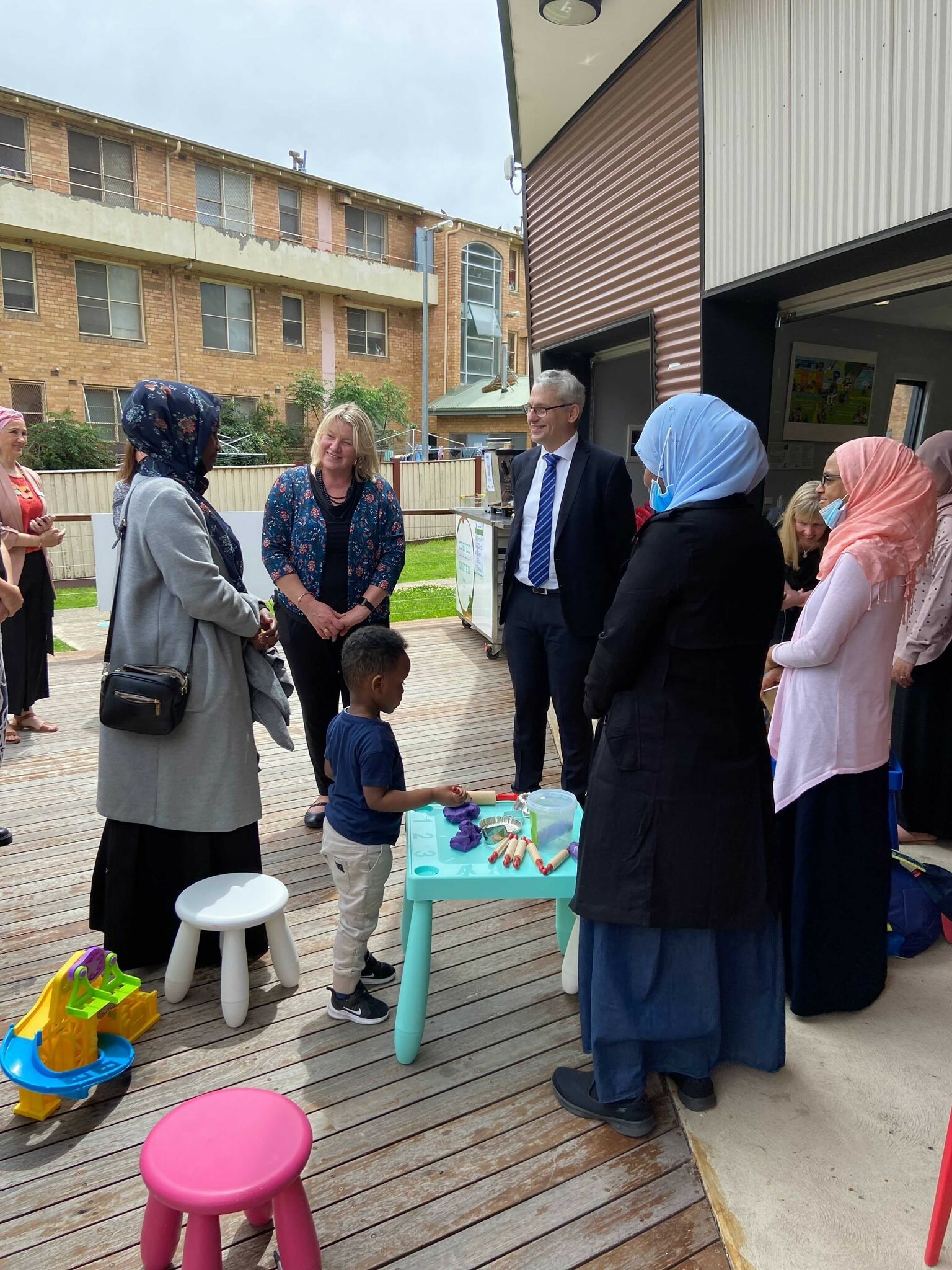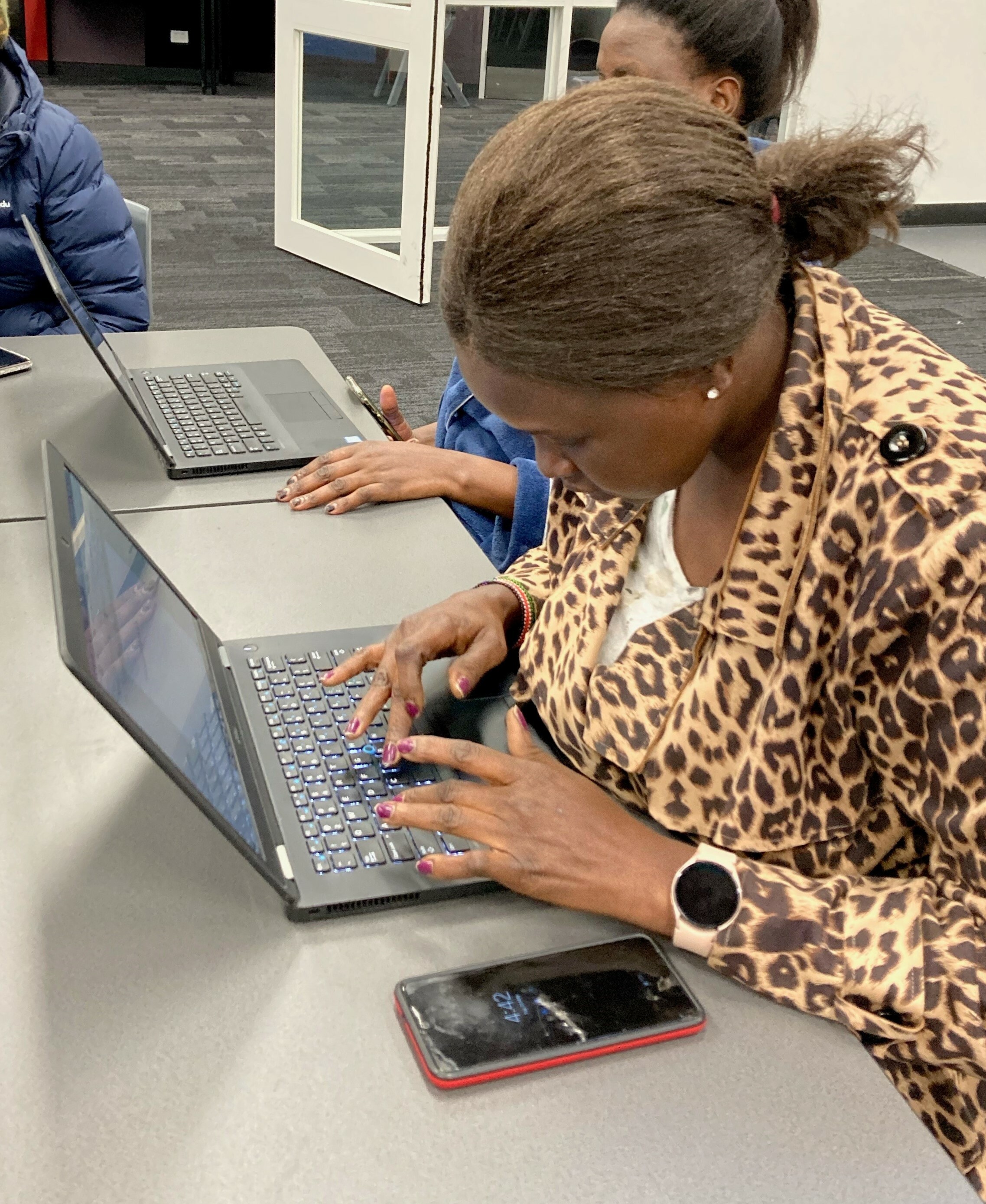We supported children’s early learning and development
Australia’s early childhood development system fails too many children. One in five Australian children start school developmentally vulnerable. That jumps to two in five for those without access to early learning.

BSL’s work with children and families seeks to address the gaps in the early childhood development system. Our ambition is for all children to thrive by maximising the participation of all children in early learning. This will give children the best start in life - and promote family wellbeing so that all children and families can flourish.
We recognise the critical role of home as the place where a child’s love of learning can be nurtured, and the importance of building the confidence and capacity of parents as their child’s first teacher to support their children’s learning and development, as well as helping parents to navigate access to early childhood education services.
Setting children up for success as learners
BSL’s Home Interaction Program for Parents and Youngsters (HIPPY) supports active parental interactions and home learning with their children, which are particularly important for families and parents who are at risk of experiencing disadvantage and exclusion.
Increasing parents’ capabilities and skills can improve confidence, family functioning, and learning opportunities in the home with children. To ensure all children have the best start in life, HIPPY makes it easier for parents to get the supports they need for their children when and where they need them. HIPPY sets children up for success as learners by ensuring they are supported to learn and thrive at home. Recognising the importance of the first three years of life, and with a recently confirmed five-year funding agreement with the Commonwealth, HIPPY is undertaking a significant reform to transition the age cohort in the program from children aged four and five years to an earlier intervention program for children aged three and four years.
Locally focussed programs like the Jindi Family and Community Centre, Frankston North and Connie Benn Centre illustrate how a local voice alongside effective policy changes will deliver sustained change through community-led innovative solutions. We need inclusive and accessible universal services, as well as targeted services for those needing extra support. Strengthening community social capital, cultural safety and diversity and building local leaders within the community is a key part of systemic change.

BSL’s Family Learning Support Program funded by the Department of Families, Fairness and Housing supported the needs of migrants and people from refugee backgrounds living in public housing. The program supports parents in addressing barriers to engagement with early years education and helps children to re-engage back into informal and formal early childhood learning programs. This is just one way that BSL is ensuring that we minimise the pandemic’s impact on families who are experiencing disadvantage or poverty, by investing in children’s learning and development, and coming alongside parents to support their children’s education.

Minister Stitt joins children, parents and staff at the Family Learning Support Program at Wingate Ave Community Centre in Ascot Vale with local member, Danny Pearson MP for Essendon
In November 2021 we hosted Ingrid Stitt MP, Minister for Early Childhood, and Danny Pearson MP for Essendon, and received confirmation of continued funding for our Family Learning Support Program at Connie Benn and Ascot Vale public housing residents.
BSL supports and reflects participant aspirations in the way our services are offered. Two initiatives have been progressed which aim to increase the diversity of the early childhood workforce and decrease barriers to participation which were identified by families. Our Early Years Mentoring program received a philanthropic grant to provide opportunities for women with diverse cultural backgrounds to work alongside playgroup staff and develop capabilities and skills as a pathway to employment in the early years sector.
With the support of the Department of Education and Training, we redesigned the Cultural Responsiveness Training, which has successfully delivered training to early years professionals for 10 kindergartens. This was a direct response to the findings of the Inquiry into Early Childhood Engagement of CALD Communities (September 2020) and contributes to a stronger and more culturally sensitive early years workforce. The number of services engaged in this training is impressive - resulting in the delivery of training to a total of 131 educators across Victoria. Furthermore, a comprehensive eight-month training program, inclusive of five cultural responsiveness modules was delivered to the 25 Best Start Facilitator Network sites across Victoria.

Our Emerging Communities Education Group supports children and families from migrant and refugee backgrounds in the Frankston, Dandenong and Casey areas to participate in various extension activities to support education outcomes. In partnership with Woodleigh School , participants can expand their learning capabilities and community connections. The program received a generous donation of laptops that enabled participants to have access to learning resources and tools. One parent involved in the program welcomed the donation; ‘As a single mum of three, we are not in a position to afford laptops. Now my son is able to do his schoolwork with his computer. It has been life-changing.’
Zara's children get a good start with BSL multicultural early learning programs
Zara* is a single parent who came to Australia as an asylum seeker and is now living in public housing with her four children. Zara was keen to meet other mothers, and for her children could play with other children in a culturally safe environment. She was referred to our supported multicultural playgroup. During playgroup, Zara enjoyed talking with other mothers and sharing different experiences.
After a few sessions of playgroup and home visits, Zara finally shared with our support worker that two of her children didn’t have birth certificates. She asked for assistance and our support worker filled out the application on the Birth, Deaths and Marriages Zara has since received a confirmation that the birth certificates will be provided.
Upon discussing Centrelink payments, Zara expressed that she had not received parenting payments for her six-month-old baby from Centrelink. Our support staff went to the Centrelink office to help rectify this situation. Centrelink has since confirmed that Zara will receive this payment as well back pay from the time of her baby’s birth.

During another visit, Zara expressed she had been unable to enrol her three-year-old for 2023 as she did not understand the new three-year-old kinder program. Our Family Learning Support worker helped her to fill out the Early Start kindergarten enrolment form, lodging the form with Council on her behalf. Zara’s daughter will commence kindergarten in 2023.
Zara feels her children are getting a good start to school with the home learning, playgroup and three-year-old kinder next year. She reported being less stressed knowing this and that she can now focus on raising, listening, and playing with her children.
Many families in contact with our Early Years services find challenges navigating childcare, education, health, housing, and social security systems. Culturally sensitive support, being listened to and assistance to navigate the service systems means the children and families participate and benefit from opportunities to connect and participate in high-quality early childhood programs both at home and in community settings.
*To protect her privacy, Zara is not her real name.
Learn more about how we support families: https://www.bsl.org.au/services/family-support/